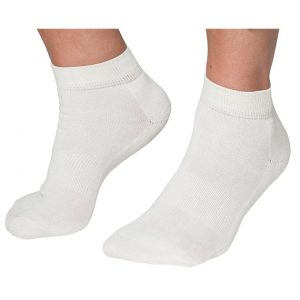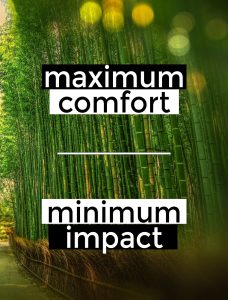The world is now at a stage where sustainability is, and should be a serious concern for every inhabiting individual as the very basic resources have become increasingly limited, expensive and in some cases, hazardous. Over the last few years, there have been numerous campaigns, protests, and speeches across the planet promoting the cause and yet somehow, we find ourselves surrounded by substantial environmental destruction and loss.

Bamboo is an excellent alternative to cotton. It is naturally resistant to insects and has always been grown organically without the use of pesticides, resulting in minimal crop losses. On the contrary, recent research figures show that cotton accounts for 16 percent of global insecticide releases. While bamboo is a self-sufficient crop that requires little to no irrigated water, cotton takes about 10,000 liters of water for the production of 1 kilogram of cotton fabric. More importantly, a cellulose fiber called ‘viscose’, present in bamboo products tends to make the fabric a lot stronger than almost any other fabric in the market, all the while making its texture soft. Bamboo fabric is one of the most breathable fabrics and is about 40 percent more absorbent than cotton which allows it to get rid of moisture fast. Added to this, bamboo cutlery and straws are a simple solution to the world’s crisis of plastic waste. Switching to bamboo products would eventually reduce the amount of plastic ending up in rivers, landfills, and oceans.
Bamboo is said to be nature’s substitute for the endangered rainforests. It has the ability to absorb twice the carbon dioxide trees do and generate a vast amount of oxygen at the same time. Its antibacterial and hypoallergenic properties make it safe for allergic and hypersensitive persons. No other tree or plant material can rival the utility and versatility of bamboo.
The unprecedented use of unsustainable material is a menace that we should work actively to reduce as responsible citizens of the world. The key is to nurture a culture that has the discipline, patience, and courage to look beyond it and opt for practices that can offer the greatest positive impact and longevity. Making the change today and switching to biodegradable, earth-loving bamboo can make a difference and ensure a positive future for us.



